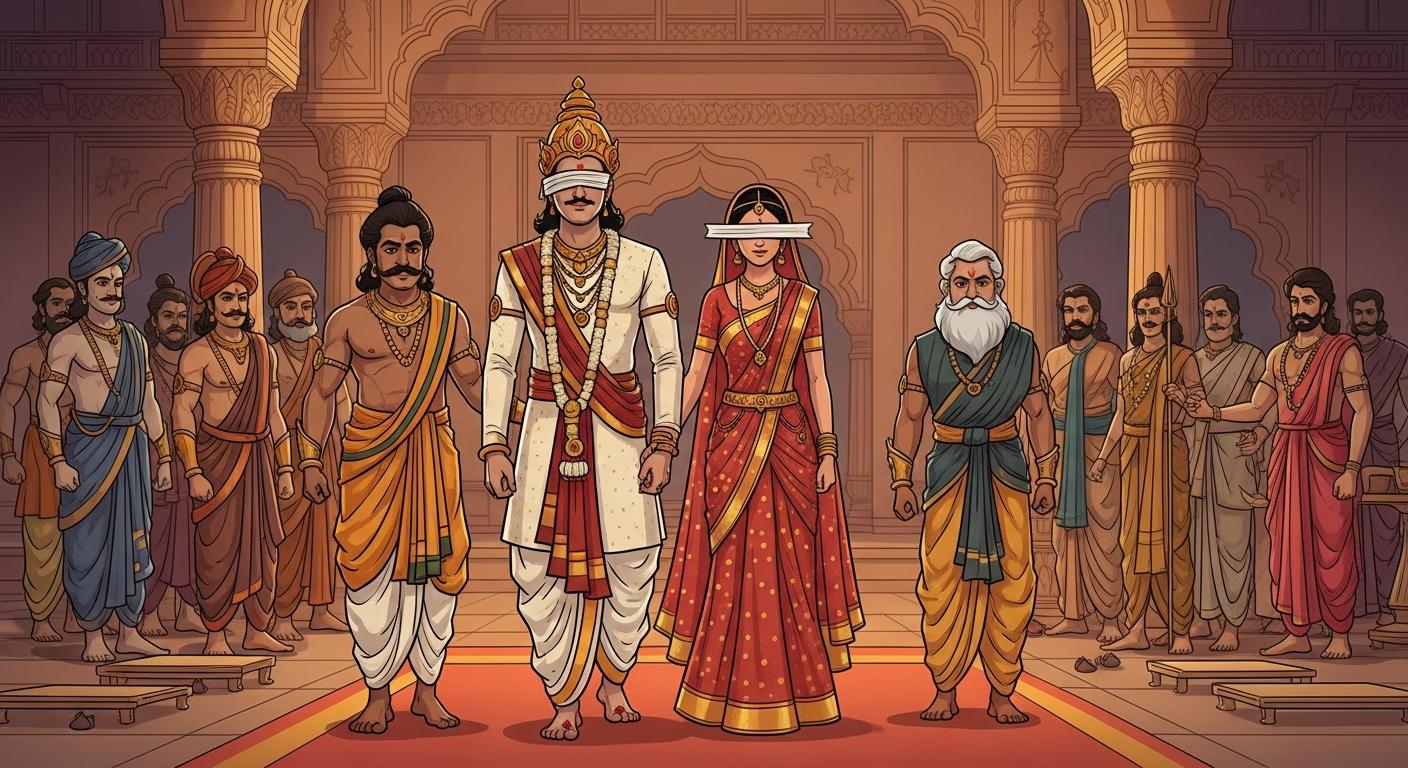Summarize this Article with:

Long ago, in the kingdom of Benaras, ruled by King Brahmadutt, there was an administrator named Bodhisatva. His responsibility was to oversee the buying and selling of animals, particularly elephants and horses, in exchange for gold and silver. Bodhisatva was known for his fairness and honesty. He would diligently assess the value of each item and make payments accordingly.
However, King Brahmadutt, despite having such an honest administrator, was a notorious miser. He harbored suspicions about Bodhisatva’s integrity. One scorching day, as he observed his gardener tirelessly tending to the palace gardens under the blazing sun, an idea took root in his mind. He thought, “This gardener appears to be an honest and dedicated person. Why else would he toil under this scorching sun?”
The king made a decision and summoned the gardener to his court. There, in front of his courtiers, he made an announcement, “I have grown weary of our current administrator and wish to appoint a new one in his place. I hereby declare this loyal gardener as the new administrator of our state. I trust that he will carry out his duties sincerely and honestly.”
However, the newly appointed gardener lacked the knowledge and experience required to assess the correct rates of items bought and sold. Consequently, he often made inaccurate judgments when it came to pricing. He rarely considered the opinions of the sellers and instead imposed his own rates, which were frequently unjust. Unfortunately, the merchants and salesmen had no recourse against this injustice.
One fateful day, a trader arrived in Benaras from a neighboring kingdom. He brought with him five hundred high-quality horses. He presented these magnificent animals to King Brahmadutt, who was deeply impressed. The king turned to his new administrator and instructed, “Purchase these horses at a fair and appropriate price.”
The administrator glanced at the horses and promptly issued an order to his attendants, saying, “Provide this trader with five sacks of rice as payment for the horses, and place these horses in the royal stables.” The trader was utterly shocked by the low price set by the administrator. Unlike other traders and salesmen, he refused to tolerate this blatant injustice. Determined to seek justice, he decided to consult with Bodhisatva, the previous administrator.
The next day, the trader approached Bodhisatva and recounted the entire situation. He implored, “Please help me find a solution, for this new administrator is persisting with his unjust ways.”
Bodhisatva pondered the matter and devised a clever plan, which he shared with the trader.
Following Bodhisatva’s advice, the trader first approached the administrator and offered him a bribe. He then proposed a rather unusual request, asking the administrator to determine the exact value of rice at the royal court the following morning.
The administrator, without any concern, assured the trader, “You need not worry; you will witness that everyone in the court will approve of my pricing.”
The following morning, during a court session, Bodhisatva was present alongside the trader. The trader questioned the administrator, “Your Majesty, your administrator provided me with five sacks of rice in exchange for my five hundred horses. Now, I would like to ascertain the true value of these five sacks of rice.”
Admitting his ignorance regarding the value of rice, the king turned to his administrator, inquiring, “What was the payment you made for the five hundred horses?”
The administrator confidently replied, “Five sacks of rice, Your Majesty.”
Seizing the opportunity, the trader questioned further, “If five hundred horses are deemed equivalent to five sacks of rice, can you then inform us of the value of five sacks of rice?”
The king, baffled by the administrator’s response, prodded him for an explanation. The administrator confidently declared, “The worth of five sacks of rice is equal to the entirety of Benaras and its neighboring kingdom, Vaishal.”
Amidst the stunned silence that ensued, one of the courtiers stood up and remarked, “We believed it was impossible to calculate the value of Benaras,
Moral:
The story of “A Corrupt Administrator” teaches us the importance of honesty, fairness, and competence in positions of authority and responsibility. It emphasizes that those in positions of power should act with integrity and not exploit their authority for personal gain.
Lesson:
- Integrity in Leadership: Leaders and administrators should prioritize honesty and fairness in their decision-making. Corruption and dishonesty can have far-reaching consequences, as seen in the story.
- Recognizing Competence: Appointments to important positions should be based on competence and qualifications rather than personal biases or judgments. The administrator’s lack of knowledge led to a series of unjust decisions.
- Justice Prevails: The story highlights that even in the face of corruption or injustice, there are often individuals, like Bodhisatva, who will work to rectify the situation and ensure that justice prevails.
- Humility and Self-Reflection: King Brahmadutt’s willingness to reevaluate his decision and admit his mistake when confronted with evidence of corruption serves as a lesson in humility and self-reflection for those in authority.
How much did you like the A Corrupt Administrator’s Downfall Tale? Please share your views in the comment box. Also, please share this story with your friends on social media so they can enjoy it, and for more such stories, please bookmark storiespub.com.
Check out other stories that we have:
- 1. Hindi Stories
- 2. Panchatantra stories
- 3. Moral Stories
- 4. Bed Time Stories
- 5. How to Draw
- 6. Scary stories for kids
- 7. Mythological Stories
















